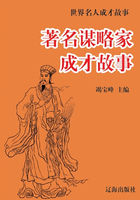First of all let us take Devoutness. When unbalanced, one of its vices is called Fanaticism. Fanaticism (when not a mere expression of ecclesiastical ambition) is only loyalty carried to a convulsive extreme. When an intensely loyal and narrow mind is once grasped by the feeling that a certain superhuman person is worthy of its exclusive devotion, one of the first things that happens is that it idealizes the devotion itself. To adequately realize the merits of the idol gets to be considered the one great merit of the worshiper; and the sacrifices and servilities by which savage tribesmen have from time immemorial exhibited their faithfulness to chieftains are now outbid in favor of the deity. Vocabularies are exhausted and languages altered in the attempt to praise him enough; death is looked on as gain if it attract his grateful notice; and the personal attitude of being his devotee becomes what one might almost call a new and exalted kind of professional specialty within the tribe.[199] The legends that gather round the lives of holy persons are fruits of this impulse to celebrate and glorify. The Buddha[200] and Mohammed[201] and their companions and many Christian saints are incrusted with a heavy jewelry of anecdotes which are meant to be honorific, but are simply abgeschmackt and silly, and form a touching expression of man's misguided propensity to praise.
[199] Christian saints have had their specialties of devotion, Saint Francis to Christ's wounds; Saint Anthony of Padua to Christ's childhood; Saint Bernard to his humanity; Saint Teresa to Saint Joseph, etc. The Shi-ite Mohammedans venerate Ali, the Prophet's son-in-law, instead of Abu-bekr, his brother-in-law.
Vambery describes a dervish whom he met in Persia, "who had solemnly vowed, thirty years before, that he would never employ his organs of speech otherwise but in uttering, everlastingly, the name of his favorite, Ali, Ali. He thus wished to signify to the world that he was the most devoted partisan of that Ali who had been dead a thousand years. In his own home, speaking with his wife, children, and friends, no other word but 'Ali!' ever passed his lips. If he wanted food or drink or anything else, he expressed his wants still by repeating 'Ali!' Begging or buying at the bazaar, it was always 'Ali!' Treated ill or generously, he would still harp on his monotonous 'Ali!' Latterly his zeal assumed such tremendous proportions that, like a madman, he would race, the whole day, up and down the streets of the town, throwing his stick high up into the air, and shriek our, all the while, at the top of his voice, 'Ali!' This dervish was venerated by everybody as a saint, and received everywhere with the greatest distinction." Arminius Vambery, his Life and Adventures, written by Himself, London, 1889, p. 69. On the anniversary of the death of Hussein, Ali's son, the Shi-ite Moslems still make the air resound with cries of his name and Ali's.
[200] Compare H. C. Warren: Buddhism in Translation, Cambridge, U.S., 1898, passim.
[201] Compare J. L. Merrick: The Life and Religion of Mohammed, as contained in the Sheeah traditions of the Hyat-ul-Kuloob, Boston. 1850, passim.
An immediate consequence of this condition of mind is jealousy for the deity's honor. How can the devotee show his loyalty better than by sensitiveness in this regard? The slightest affront or neglect must be resented, the deity's enemies must be put to shame. In exceedingly narrow minds and active wills, such a care may become an engrossing preoccupation; and crusades have been preached and massacres instigated for no other reason than to remove a fancied slight upon the God. Theologies representing the gods as mindful of their glory, and churches with imperialistic policies, have conspired to fan this temper to a glow, so that intolerance and persecution have come to be vices associated by some of us inseparably with the saintly mind. They are unquestionably its besetting sins. The saintly temper is a moral temper, and a moral temper has often to be cruel. It is a partisan temper, and that is cruel. Between his own and Jehovah's enemies a David knows no difference; a Catherine of Siena, panting to stop the warfare among Christians which was the scandal of her epoch, can think of no better method of union among them than a crusade to massacre the Turks; Luther finds no word of protest or regret over the atrocious tortures with which the Anabaptist leaders were put to death; and a Cromwell praises the Lord for delivering his enemies into his hands for "execution." Politics come in in all such cases; but piety finds the partnership not quite unnatural. So, when "freethinkers" tell us that religion and fanaticism are twins, we cannot make an unqualified denial of the charge.
Fanaticism must then be inscribed on the wrong side of religion's account, so long as the religious person's intellect is on the stage which the despotic kind of God satisfies. But as soon as the God is represented as less intent on his own honor and glory, it ceases to be a danger.
Fanaticism is found only where the character is masterful and aggressive. In gentle characters, where devoutness is intense and the intellect feeble, we have an imaginative absorption in the love of God to the exclusion of all practical human interests, which, though innocent enough, is too one-sided to be admirable. A mind too narrow has room but for one kind of affection. When the love of God takes possession of such a mind, it expels all human loves and human uses. There is no English name for such a sweet excess of devotion, so I will refer to it as a theopathic condition.
The blessed Margaret Mary Alacoque may serve as an example.















